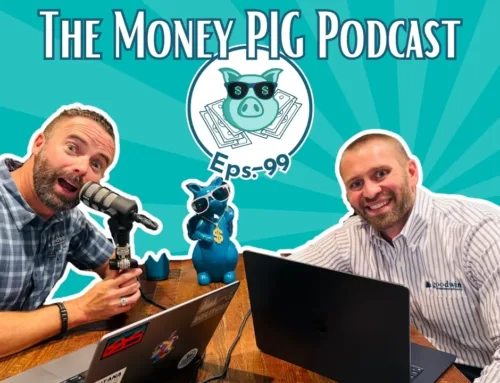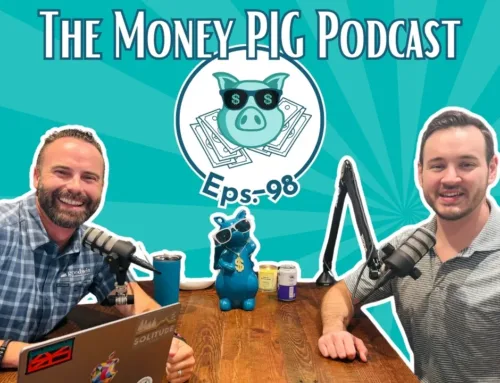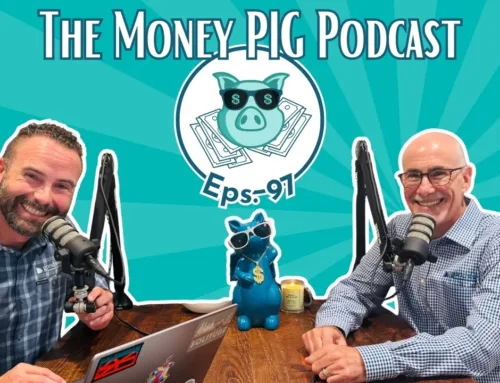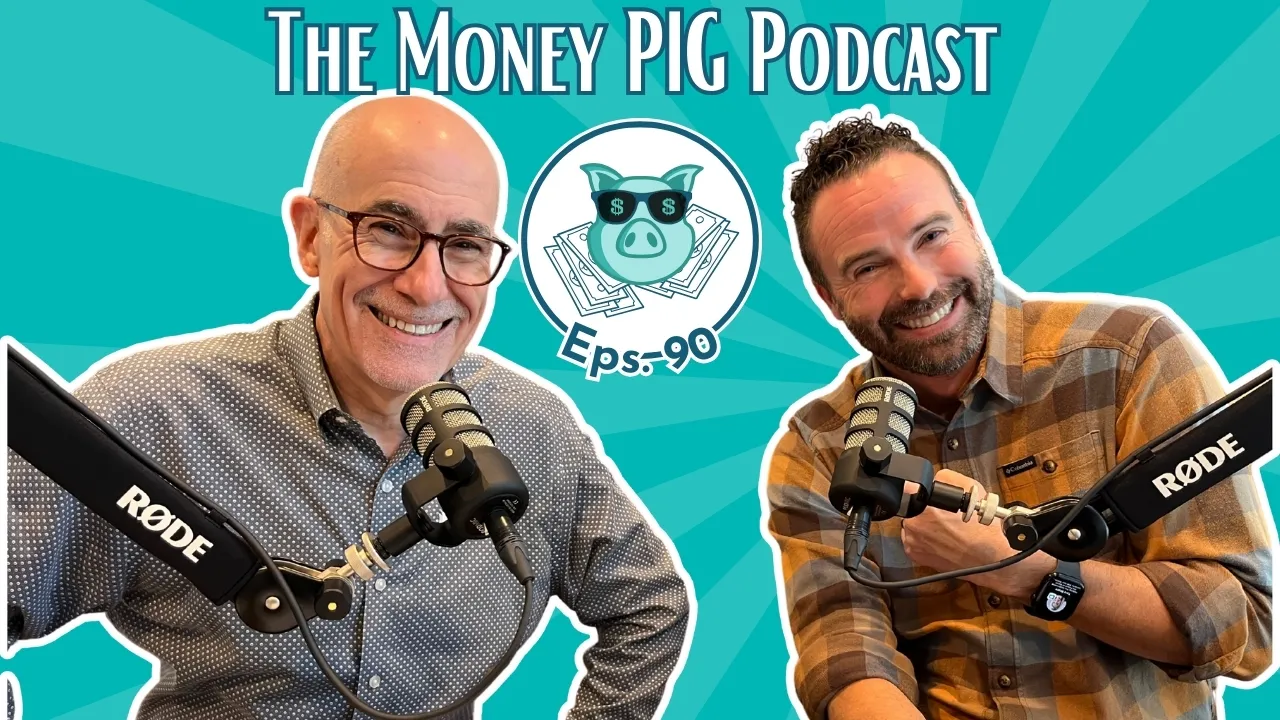
Link to Youtube –
https://youtu.be/lX82HmDJj5E
Link to buzz sprout –
https://moneypig.buzzsprout.com/2136084/episodes/17224326-episode-90-helping-you-understand-the-future-of-social-security-and-your-retirement
In this episode of The Money PIG Podcast, Tim is joined by the legendary Joe “Beckforth” Beckford to break down one of the biggest retirement questions: Is Social Security running out?
They cover:
- The truth about the 2035 Social Security projections
- Why Social Security isn’t disappearing—but may be changing
- How it’s funded and what that means for future benefits
- Potential government fixes (think: taxes, retirement age, benefit cuts)
- When to claim benefits—62, 67, or wait until 70?
- The real cost of taking it early (hint: it’s more than just a smaller check)
- Mistakes people make when claiming (and how to avoid them)
💡 Want to go deeper? Read our blog:
👉 Understanding What the Future of Social Security Means for You and Your Retirement
🎧 Enjoy the episode? Subscribe, share it, and leave us a review on Apple or Spotify!
For personalized financial guidance, schedule an intro call with our team at Goodwin Investment Advisory in Canton, GA. Our CFP® professionals can provide advice and help you navigate how to invest your wealth and plan for your retirement. We’d love to help you live out your legacy!
Goodwin Investment Advisory is a Registered Investment Advisory firm regulated by the Securities and Exchange Commission in accordance and compliance with securities laws and regulations. Goodwin Investment Advisory does not render or offer to render personalized investment or tax advice through the Money PIG podcast. The information provided is for informational purposes only and does not constitute financial, tax, investment or legal advice.
Transcript generated by AI
Welcome back to the Money Pig podcast. Today we have the one, the only Joseph Beckford, the fourth who we affectionately call Beckforth around here. How you doing, Joe? I made that convenient for everybody, I? I really appreciate that. That worked out really, well. serve. serve. That’s what it’s all about. I’m here That’s what it’s all about. So Joe, today we’re going be talking about social security. We’re going be talking about concerns about social security benefits. running out and kind of unpacking social security a little bit today. So excited about that topic. Before we dive into it, share with the audience a little something they may not know about you, Joe. Mr. Beckforth? Something that they, gosh, I feel like I’m such an open book. Everybody knows everything. Okay, so was in a client meeting today and the topic of Lebanese food came up. And… The said, if you ever had Lebanese food. I said, yeah, my grandmother was Lebanese. And they were like, I never knew that about you. said, well, then I guess you have to keep coming back for meetings. Learn all those great things. bit that they were like, that’s why we came was to learn this. So we traded recipes. was, yeah, it was magical. That does sound pretty magical. That’s wonderful. Yeah. Very cool. Well, Joe, do you know the difference between a piano and a tuna fish? I’ll steal your thunder and I, cause I do know the answer to that. do? let’s hear it. Yes. Because you can tune a piano, but you can’t tune a fish. Bravo. Bravo. First time for everything, folks. Of course, Joe comes with the answer to the dad joke. Okay. So other trivia. that’s an old REO speed wagon. Wow. that’s check it out. Like recall child of the eighties, man. That’s it comes in handy. That’s awesome. That’s a real, that’s a real thing. Well, that’s a good takeaway. I think, you know, if there was nothing else you heard today, you know, by listening to the podcast tune a piano, but not a fish. All right. Well, let’s get into social security talking points. And, I know that this creates a lot of angst for folks, social security. I always feel like in the 20 plus years I’ve been doing, this business, it just seems like Tim Goodwin (02:16.782) Social Security is always in jeopardy. Like that is just a natural theme. It’s like tied in with Social Security. know? How many people ask you in your financial plans when you were doing those that like don’t count Social Security. It’s not going to be there. It’s the default. Right? All the time. It’s the default. And I appreciate that like independence, that rugged individualism that a lot of Americans have. I’m sure other people do too, but you know, they’re just like, Oh, I want to be financially independent of Social Security. But really I’m like, okay, well we can run that scenario, but social security is a pretty substantial income source, especially because of the COLA adjustments, the cost of living adjustments over time. then you and I know when we forecast out our plans or even have clients in retirement, that it ended up being a substantial income source, a substantial part of the plan. yeah, when the news media’s job is to scare us about stuff, you know, and tell us the things that are three standard deviations away from the meme, They often love to talk about how social security is running out and, you know, grandma’s not gonna be able to buy her groceries. So let’s have that discussion. Is social security really running out? It is put it this way. It’s not growing, but running out is different. Like running out makes it seem like, you know, in three years, social security doesn’t exist anymore. we’re all used to have a couple of grand coming in a month and then zero. Right. Right. So that’s not happening, but the trust as they call it is not growing. is sort of depleting, but it is an ongoing model also, right? Because I tell clients, if you look at your social security earnings statement over the course of your lifetime, And you figure out like, oh, I made, I contributed, you know, $8,000 this one year, and I contributed this and this and this and this. You’re going to get paid back in social security benefits more than you contributed over your lifetime in a very short order. And so how does that math work? Well, people who work today are paying payroll taxes and that subsidizes and that kicks in and that carries us forward. So that’s how we keep launching. So right now is it reducing? Tim Goodwin (04:21.742) It’s reducing. And right now we’re on a trajectory. What is it? 2035. The projection is we’ll be able to cover 83 % of benefits. Is that 2035 when it’s reduced? Yes. Okay. The trust fund is basically kind of out of money at that point. Okay. And so what we’re relying on is current wage earners and their payroll taxes to be able to handle benefits for the rest of us who will be retired by that time. It doesn’t go away, it’s just reduced because it’s still being funded by current workers. Right, there’s just not a big pot of money that is able to grow. Like we take pots of money and invest them for people and grow them. That big pot of money doesn’t necessarily exist anymore. Now we’re kind of working on cash flow at that point. Okay, so how likely do you think that will happen? That it’ll actually be reduced? My personal opinion is that… What I see in what I tell clients is that one thing we know about America is that we are getting older and we’re graying and older people vote. And whatever your political affiliations are, one thing that is pretty unilateral across certainly my microcosm of clients, but also just across the board, whether you like entitlement programs, you feel good about them, you feel bad about them. Universally, I hear don’t touch my social security. Right. will talk. my Congressman, I’ll talk to my Senator, I will vote them out. So I think popular uprising will make sure that we have to fix it somehow. Right. So, yeah. So I have a very small conviction that we’re going to let it just go out of business. We’re going to make changes. It may not be as robust as it is today. some changes are going to have to be made to keep it solvent for sure. I feel confident we will. In the past, know, like it’s. you know, usually ninth hour, not usually way ahead of time. It’s usually, hey, this thing’s gonna bust or break and we need to do something to fix it. So let’s walk right into what are some possible fixes, because I don’t feel like it’s some mystery or some overly complicated thing that will have to be done to fix the Social Security system as it is today. So walk us through what are some of the ways that… Tim Goodwin (06:36.334) You know, the government can say, we’ll do these things. We’ll make these policy changes and that will help to fix this. So there, you know, there’ve been a lot of ideas and these aren’t just me creating them. There’ve been a lot of ideas already floated around and then just haven’t necessarily been voted on. But one of them is, you know, there is a maximum amount of income that you can make on which you pay social security tax. So if you’re a very high income earner, you’ll notice there’s a much smaller amount on which you pay social security taxes. versus what you pay federal income taxes on. So you get a break. They could eliminate that. They could just say, you’re going to pay social security tax on all of it, just like you pay on that. That would be a huge revenue boom. They could say the rate of social security tax needs to go up. Just taxing everybody more to fund that entitlement. Sure. That could be done as well. So that’s more like the income generation side. You could also do a cost cutting side and you could say, well, right now, We’ve already moved full retirement age. Where do we sit at now? Right? It’s at 67, right? For earners today. It could be pushed further. I mean, that’s not my hope, but I could see that potentially happening. Maybe 67 becomes 67 and a half or 68 or something like that. As Americans live longer, they’ve pushed it in the past. That could be done. They could reduce the amount of benefit. Maybe they say, well, you know, you were going to get A dollar on the dollar. Now we’re only able to give you 90 cents on the dollar, 95 cents on the dollar or something like They could like change how it’s indexed or averaged or calculated. So there are costs. So you could, there’s an increased revenue side. There’s a cost cutting side. You could do a combination of both. Right. You know, it’s kind of up in the air. I one of the, you know, cost cutting sides, it would initially sound very unpopular, but I think at least in our experience with clients, a lot of them don’t realize the spousal benefit rule. Right. Right. So your spouse, let’s say they didn’t work outside of the home very much. Right now would be entitled to up to 50%. Right. Right. Of that larger benefit from the spouse. So it’s a great thing. I think it’s an incredible gift. It feels like a gift because it is the spouse is getting that benefit even though they didn’t contribute to it. Right. And it’s something that we really take seriously when it comes to planning. It’s kind of a fun thing to share with clients for the first time. Tim Goodwin (08:59.79) you know, oh, I didn’t really work, you know, enough, or I didn’t get enough credits, or I didn’t really contribute a whole lot. Mine’s just a couple hundred bucks a month and his is a couple thousand. It’s like, well, they’re gonna bump yours up to half based on the spousal benefit. How many times have you been like where that was a light bulb moment for a client where they were like, wait, what? Yeah. I’m eligible for that? Yeah. They just aren’t aware of it. So I feel like that, again, would be unpopular for the folks that are aware of it or the folks that have it, maybe for the up and coming generations that just don’t even realize that’s benefit. mean, that’s pretty substantial because you’re paying somebody half where they potentially contributed little to nothing towards that. Yeah. So those are all options, right? Those are all on the table. And I know what are we going to live with? I don’t know. But I guess I hope they choose wisely because their political careers might depend on it. yeah, exactly. Exactly. Okay, cool. So let’s say I’m, you know, really thinking about retirement because I am five or 10 years away from thrown in the towel and retiring. How worried do I need to be about my benefits being adjusted or the government, you know, having to make some major changes to keep it going? think really based on what we were just talking about that, newer, newer, newer horizon, potential retirees probably have less to worry about than longer term. Cause like we said, you know, I mean, the current fund is going to last another 10 years and still should is projected if nothing changes, which we do think things will change. changes at all. We’re going to have, you know, they’re going to be able to pay basically 83 cents on the dollar to what’s out there. So, if you’re retiring in that next timeframe, you’re probably a little better off. Right. Your benefits are probably going to, if I had to guess your benefits, probably a little more robust than somebody who is retiring much later than that. Yeah. We imagine somebody who’s in high school or college right now, their social security will look different. Yeah. the time they’re, I’m imagining when my kids get old enough to claim social security, won’t be necessarily as robust as it is today. It’s to change overall. walk us through a little bit on the education side, um, about how to maximize social security benefits. So social security benefits can be really taken anywhere between age 62 and age 70. And that ends up being up to the individual, right? Tim Goodwin (11:22.488) Yep. So how do I maximize it? What comes into the decision making of when do I tell Social Security, start sending me a check? I know I can send it anywhere between age 62 and 70. I just heard today that one of our clients that turned 70 to check just showed up. You know, it’s like, wow, I didn’t even realize I needed to turn this on. guess they kind of by default do it because that’s that’s the end. Right. And he’s got his own reasons with this financial advisor us for making those decisions. But how do we walk our clients through that decision? It’s a great question that I get asked all the time. Right. And the answer much of my clients chagrin is usually it depends. They hate here. It depends. But the reality is everybody’s situation is different. There’s no cookie cutter solution. And I have people say, what is the most I can get out of every nickel out of the social security? And I tell people, well, postpone until 70 because you get an extra bump, which we’ll talk about just a sec and live a really long time so that you get a lot of those big benefits out of it. But there’s a cost to doing that, right? And that is definitely not the right answer for everybody. So why do we say postpone till 70? So right now, full retirement age is 67. So every year that you delay taking it after 67, you get an 8 % a year bump in your income payment. If you add to that, the Social Security Administration is doing cost of living adjustments that you brought up earlier. It’s not unsubstantial that like, wow, my benefit, if I take it at 67 would be this, but if I wait till 70, my monthly benefit looks like that. And you add to at this point, it’s a low to no risk return. Right. Like you could try to go chase a 10 % return in the stock market, but you’re taking substantial risk to do that. Yeah. At this point with Social Security, you delay, you get that 8 % plus coal adjustment. At this point, it’s risk free. I mean, that’s not inconsequential. Right. So that is a… That’s a potentially really good way to go. risk adjusted return is a huge premium. Yeah. But it isn’t the right answer for everybody because everybody’s situation is different. And we were talking about this a little bit before we started. So one reason that that might not be the answer for you is, okay, you delay social security, especially if you might want to retire before age 70. And I ask people, okay, so what are you going to live on? What does that look like? And for most people that means, oh, Tim Goodwin (13:50.594) I’m going to have investments that I’m going to have to live on. So you really need to take into account what is the portfolio look like? How is it invested? What is its longevity going to be? And how’s it taxed, right? So if we’ve got Roth money and if we’ve got after tax money and I can send you distributions that really don’t impact your taxes, that might be a great strategy to do. If you have all pre-tax money and I need to send you Those same dollar amounts in distributions, but it’s a hundred percent taxable income to you. Hmm. Now I’m netting a whole lot less and I’m taking out dollars that can’t grow later in the future. So, you know, we’d try to look at lifetime taxes and lifetime benefit of the portfolio. And you might be pounding your portfolio really, really hard up till 70 to where it’s to your detriment to do it. So, yeah, there’s, Yeah, I’m with you. Like I’d rather just have this very simple answer or this like here’s this easy way to think about it or this is what works for everybody. And it really is complicated with Social Security because it’s not just how to maximize the benefit. It’s how to minimize the taxes, not just that year over your lifetime, right? And minimize the impact to your portfolio, right? The value of your investable portfolio. So I know advisors here when they’re doing that planning that you guys are looking at all of those things. Right? Yeah, how do we Yeah, how do we you have this, you know, $100,000 of living expenses, there’s different things that can cover that like social security. But as far as the timing of it is going to depend on the other things the client has that will impact the taxes. And you know, whether it sucks a portfolio value too fast, because they’re delaying social security, that portfolio doesn’t really recover. Or whether it puts them at a higher tax situation, like you said, the distributions of the IRA while you wait to delay if you’re retired. you’re being taxed 100 % on that tax rate IRA where the social security at the most should be taxed 85%. Right. So, so we were talking about there’s this window between 62 and 70. You talked about, okay, full retirement age is 70, you get this great growth, and that’s how you would maximize the income, but you’ve also got to consider the taxes and other things. But what if I say, look, Joe, you’re talking here about a podcast about it, the benefits are about to reduce. Tim Goodwin (16:12.398) And I don’t have tons of confidence in the government. you know, I’d rather keep my investments invested. You guys do great with those, you know, I’m going to start as early as possible. What’d you say that was 62? Great. I’m going to start at 62. What are some things that I need to consider if I’m going to start pulling from Social Security at 62 before my full retirement age of 67? If it’s me. So That is not an uncommon statement. I hear that a lot from people like, that’s my money, I want it, I earn it, I don’t trust the government. Let’s turn on the payments, let’s get this going. So the government has this really nice carrot and stick approach to social security. So the carrot is, oh, if you take it at full retirement age or later, you delay your benefit, we’ll give you extra money. That sounds great. While they’re betting, you’re not gonna live that long. So it’s not because they’re nice, it’s because it’s in their best interest. They’re betting, they’re gonna have to make those payments for a lesser amount of time. And so that’s kind of the mentality of the person who’s asking to take it early as well. Like, I don’t know how long I’m gonna live, which is true, none of us do. So let me take it early. Well, then there’s a stick that’s associated with taking it early. Like, yes, you can take it early, but just like we’re going to give you extra money if you wait. we’re going to take money off the table if you take it early and it’s by month. So it’s every month that you take it earlier than age 67 all the way back five years before that. So there’s a monthly deduction in full retirement age benefit that you’re going to take anywhere in that five year period. So you’re looking at 61 month deductions if you take it as early as 62. So that’s one part. Another detriment is your spouse’s survivor benefit is based off that. So again, part of the whole financial picture, if one spouse is, has been more of breadwinner, has a much higher earnings. If you don’t have a lot of portfolio assets and, and, and, and you don’t have life insurance and things like that. You take your benefit early. You don’t have a lot of investments. Maybe you don’t have life insurance, maybe, and then you pass away. Now your spousal benefit is significantly reduced. Tim Goodwin (18:23.086) versus if you waited till your full retirement age or until age 70. Spousal or survivor benefit. Yeah, I’m sorry. I said spousal. mean survivor. Yeah. What are you going to leave your spouse with? Yeah. Afterwards, what does that look like? So are you potentially putting somebody at risk, you know, with that? So that’s a consideration. The less dollar amount is a consideration. And then the last one I was talking about was, you going to still work? Cause if you’re still going to work and earn social security benefits, Uncle Sam says, uh-uh, not so fast. We’re not going to pay you and you get to work still. So you can turn on your income stream and on paper there’s an amount that they’ll pay you and they’ll say, okay, Tim, gonna give you, let’s say your benefit is $2,000 a month. Okay, we’re gonna give you $2,000 a month, but you’re still working and you’re making more than a threshold number. And what do we say the threshold number is? Oh, for 2025, the threshold number is $23,400. Not a lot. Right. Right. That’s some little producing hobby or part-time job. That’s fine. That’s a part-time job. Normal full-time job. Not going to want to start early. No, no. So you go a little, so let’s say you go over that and then social security comes back and says, Tim, that was great. We’re going to take a dollar off the table for you. And we’re going to, for every $2 we were going to give you, we’re going to give you one. So that $2,000 benefit is a $1,000 benefit. Wow. And we’re going to hold that money in our pocket for you until you hit full retirement age. Trust us. And when you do hit full retirement age, we’ll boost your benefit and we’ll give it back to you. Yeah. my experience in the math is that it doesn’t quite work out that way. Now, I think I remember if this is still true, if one spouse takes it early, the other spouse could still be earning a good income and not be dinging, you know, the first spouse that’s taking it. Like, let’s say my wife decides to take her Social Security early, but she’s not going to work. But I keep working. My income doesn’t go over and ding her social security. Okay. Right. So that that’s the case. But if I pull early and I keep working and I’m earning more than 23,000, the juice isn’t gonna be worth the squeeze on that. No, it’s definitely not. Okay. I mean, you’re taking less of a benefit. You’re having a dollar off the table. You’re suffering a reduced survivor benefit. It’s just like negative, negative, negative. And we would say like, that’s probably not your best interest. felt like too. mean, unless it was situation, like I say, where like one couple is just not working anyway, they want to start early, that’s fine. Tim Goodwin (20:49.922) But outside of that, to me, the ability to start Social Security early is really because there’s some kind of financial hardship. Pretty much. There’s something going on maybe health-wise, you’re in between jobs, whatever it is, that you really need that income and you’re not able to generate it in other ways. It’s really there for a hardship. All right, so hey, for the sake of time, I’ll try to wrap this up here. Let’s land the plane here over the last couple of topics. What mistakes do people make when claiming social security? We feel like we might’ve touched on a couple of those, let’s wrap up any we might’ve missed. I think a lot of the mistakes that they make is that they just make a decision without consulting wise counsel. Really. It’s easy for me to say because I’m an advisor. So one of mine is always like, you should work with an advisor to help you work through this because the decision is not trivial. It’s not small and You can say, I took it and then I want to stop and you can do that, but it’s not easy and it’s not the path of least resistance and most people don’t do that. So you can claim too early. You could maybe wait too long. You just say, no, I’m going to maximize my benefit. But then nobody looked at your portfolio and you didn’t run your portfolio and say, yeah, but what am I doing to myself in the meantime? What am I living on? Am I cannibalizing myself? while I’m waiting for this, the golden goose laying the golden egg. Yeah. Yeah. Exactly. have to sell that thing and do it. Yeah. So you’re not coordinating your other accounts. And, I have had people who walked in and didn’t know about that dollar, takeoff for working, you know, they claim early and they kept working and then they were surprised like, wow, they’re withholding all this money. happened? How did that happen? Cause they didn’t read the fine print. Yeah. Which just goes to seeking wise counsel, I think. So I think that’s good. can go too early or too late and those are, those could both be mistakes for you. think that’s the mistake added. think one mistake, I know the question is about claiming social security, but if you back up a little bit to that mistake where you’re not talking to your advisor about it, you’re not talking about how does the spousal benefit rule work? You’re not thinking about Tim Goodwin (22:57.548) maybe an age difference with you and your spouse if you’re married. And then the other one that’s big for me, I’m the founder here, I’m the entrepreneur. When I talk to other entrepreneurs, they try to get cute and they pay themselves a much smaller W-2 and take more distributions to save payroll taxes. What they’re doing is they’re shooting themselves in the foot and underfunding their own social security, which we know as financial planners is really a big part of… becomes a big part of their retirement planning, having that social security. So I generally, you brought it up at the beginning, say, at least max out social security, and then maybe you can do the rest of distribution, saves a little Medicare tax, but it’s worth fully funding it, because up to this point, it’s been a very strong part of a retirement portfolio. It has. Any final words on social security or? It’s everybody’s most important, most fun. And you always have me on for the most fun. Yes, exactly. We knew it. Let’s get you on for this fun topic. But in reality, I mean, we get asked this probably more than most things. It’s funny. You know, we manage money for people and they do talk about investments and what’s going to happen in the market. This has got to be number two that I’m asked about all the time. what that is. And I think it might be a little bit of this sense of like not feeling in control because like they’re in control to hire us, they’re in control to pick their risk level and the portfolio that we put them in and they can choose if they want to make those changes, right? With social security, it’s kind of there. I had to make these decisions and that’s all I have control over. I don’t have control over whether it’s funded or not or reduced in the future. Maybe I can at least try to do my vote. But like you said, talk to an advisor because these decisions have such huge impact and once you make them, you kind of lose control over backpedaling on most of those decisions. And it’s complicated. It is complicated. It really is. Yeah. And there’s other things to consider. I know when you, when you used to read the social security statement, it would say, Hey, this is not going to cover all of your, you know, living expenses and retirement. know, you’ve got to have other sources, which is obviously what we help our clients with, but still it’s usually substantial. Would you say it’s like a third, a half, of meeting the living expenses of our clients overall on average? would you say? How substantial is social security? Tim Goodwin (25:13.454) as far as meeting living expenses for our retired clients. I’d say probably just based on experience and what most clients tell me they want as their annual living wage that it ends up being about a third. A third, yeah. Maybe a little bit more. Cool, awesome. Well Joe, thanks so much for joining us today and talking through that. For the listeners, if you want to get a hold of the blog, you can go onto our website, goodonevestment.com, go over to Knowledge Center. and then you can search Social Security there under blog and you’ll be able to see this blog up there from us. If you’re subscribed to our blog, then you would get it automatically. If not, hey, maybe consider subscribing to the blog and you can get this great content. So that sounds like a great idea. Right. It’s a great idea. Great idea. We’ve got we’re getting really close to 5000 blog subscribers. So that’d be super cool. Help us out audience. So speaking of helping us out, if you’re like, I don’t want to learn anything else about Social Security. but you want to give us some kind of reciprocity. We’d really love a review. We need a new review on Apple or Spotify. That would be great. And Joe, as we sign off, what would you say that you’re grateful for today? Tim Goodwin (26:26.956) So this will sound cheesy, but I’m grateful for this job and why, because I get to work with people that I like. Yeah, that is nice. It’s nice. And I get to work with clients that I actually deeply care about and want to help them and is very fulfilling when they walk away and they feel helped and they kind of express that gratitude, just like, wow, this was super helpful. Thank you so much. This made a big difference and all that stuff. And that’s great. And the flip side of that is I don’t have to work with people that I don’t want to. You’re in a good place. am in a really good place. And most people, know, that I talked to a lot of people very close to retirement, they don’t have that luxury. And I realized they do have a lecture and that’s a blessing. So that’s awesome. Well, we’re grateful for you and that you care about the client so much. I’m grateful for Angela, our producer, across the table here for Angela rocks. Shout out to Angela. and Tara who helped to create this content and script it for us. Hopefully you guys found it super helpful. I’ll share what I’m grateful for, which is my wife Maureen. She is just really into bread baking right now, like straight up buying the grain. my making that flour like on the fly. And then baking this awesome bread she said she told me last night the past three weeks she’s only in her own. bread, you know, and guess there’s a lot of these nutrients that if you mill it freshly mill it, and you eat it soon, that there’s a much higher nutritional benefit. To me, it just tastes amazing. let’s go smells amazing when it’s being baked. So I’m just grateful for having like fresh baked build right at home all the time right now. It’s pretty awesome. What a blessing that would be Angela if he brought that in for us. not only makes it out of should share the blessing. Gobbles up so quick. That’s a good challenge. need to work on that. Thank the audience so much. We want to thank you guys for listening. We appreciate you guys and we’ll catch you next time. Bye bye.
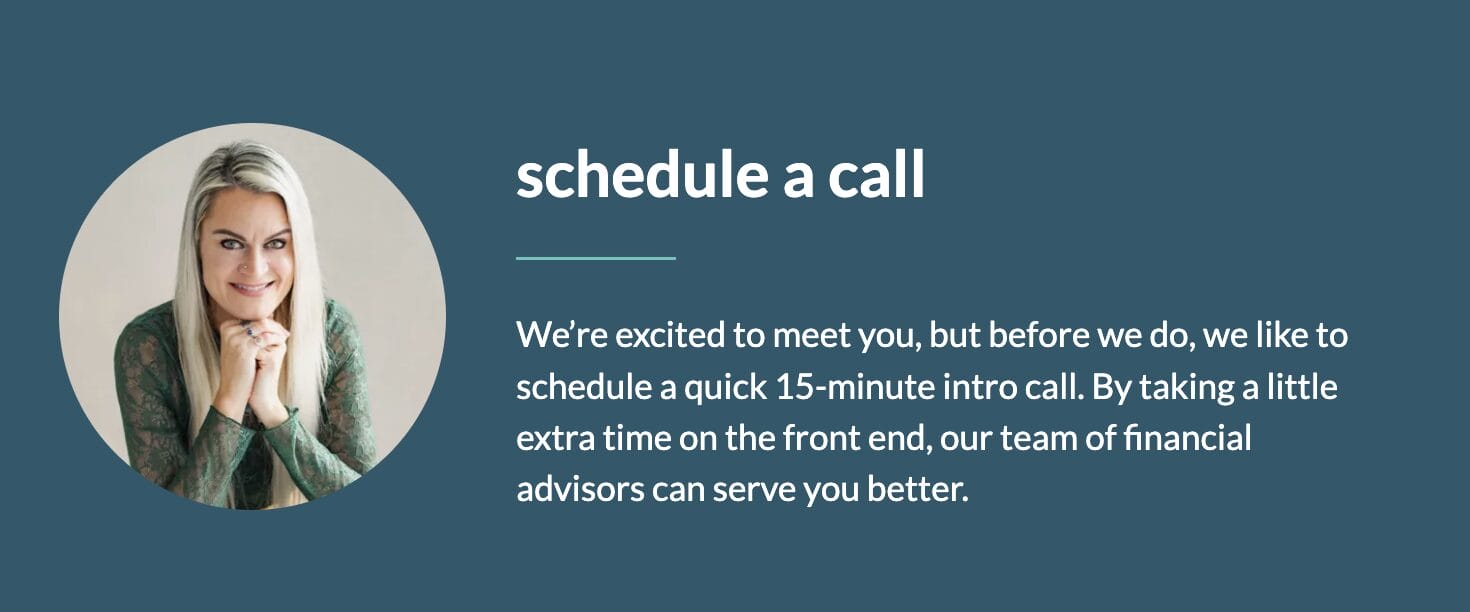
The Money PIG podcast is hosted by Reid Trego. Goodwin Investment Advisory is a Registered Investment Advisory firm regulated by the Securities and Exchange Commission in accordance and compliance with securities laws and regulations. Goodwin Investment Advisory does not render or offer to render personalized investment or tax advice through the Money PIG podcast. The information provided is for informational purposes only and does not constitute financial, tax, investment or legal advice.
For personalized financial guidance, schedule an schedule an intro call with our team at Goodwin Investment Advisory in Canton, GA . Our CFP® professionals can provide advice and help you navigate how to invest your wealth and plan for your retirement. We’d love to help you live out your legacy!
Goodwin Investment Advisory is a Registered Investment Advisory firm regulated by the Securities and Exchange Commission in accordance and compliance with securities laws and regulations. Goodwin Investment Advisory does not render or offer to render personalized investment or tax advice through the Money PIG podcast. The information provided is for informational purposes only and does not constitute financial, tax, investment or legal advice.

